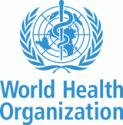WHO

WHO, Regional Office for Europe, supports 53 Member States in the WHO European Region in developing and sustaining their national health policies, health systems and public health programs; working to identify, prevent
and overcome potential threats to health; anticipating future challenges; and advocating public health.
WHO’s work is a two-way exchange: gathering best expertise from key partners in national and international institutions, and analysing data and the research results to propose evidence-based public health interventions. This enables WHO/Europe to inform and advise countries on the most effective ways to improve the health of their populations.
WHO/Europe runs or has direct access to essential databases providing authoritative health data from the 53 countries in the Region. The Health Evidence Network (HEN) and the European Environment and Health Information System (ENHIS) are additional valuable resources for health policy-making. WHO/Europe provides tailored support to countries through technical programs addressing a wide range of public health issues. These programs work together, covering areas including disease prevention and control, response to public health emergencies, environmental health, health determinants and health systems.
The Climate change, Green health service and Sustainable development (CGS, former GCH, Global Change and Health) team at WHO/Europe, is active in science and policy work on health effects of global change, climate change since 1997 and, more recently, on sustainable development. It has contributed to the environment and health process and four of the five ministerial conferences in the European Region. The team has participated to several projects on the topic co-funded by the European Commission in DG SANCO (Directorate-General for Health and Consumers) and DG Research. Among these are PHEWE (Assessment and Prevention of acute Health Effects of Weather conditions in Europe), cCASHh (Climate Change And Adaptation Strategies For Human Health), EuroHEAT (health effects of heat in European cities), CEHAPIS (Climate, environment and health action plan and information system), CIRCE (Climate change and impacts research) and IMPACT2C (Quantifying projected impacts under 2°C warming). WHO/Europe works to identify policy options to help prevent, prepare for and respond to the health effects of these changes, and supports its Member States in selecting and implementing the most suitable strategies. The team also coordinates the extreme weather emergency response in the WHO European Region



